Protest
2015–2017
These images are a selection from a multiyear documentary project focusing on protest, public demonstration, and the issues which catalyse these actions. The series followed issues relating to the interplay of human rights, racism, marginalized communities, austerity economics and the shift towards increasingly right-wing political agendas in the UK.
-
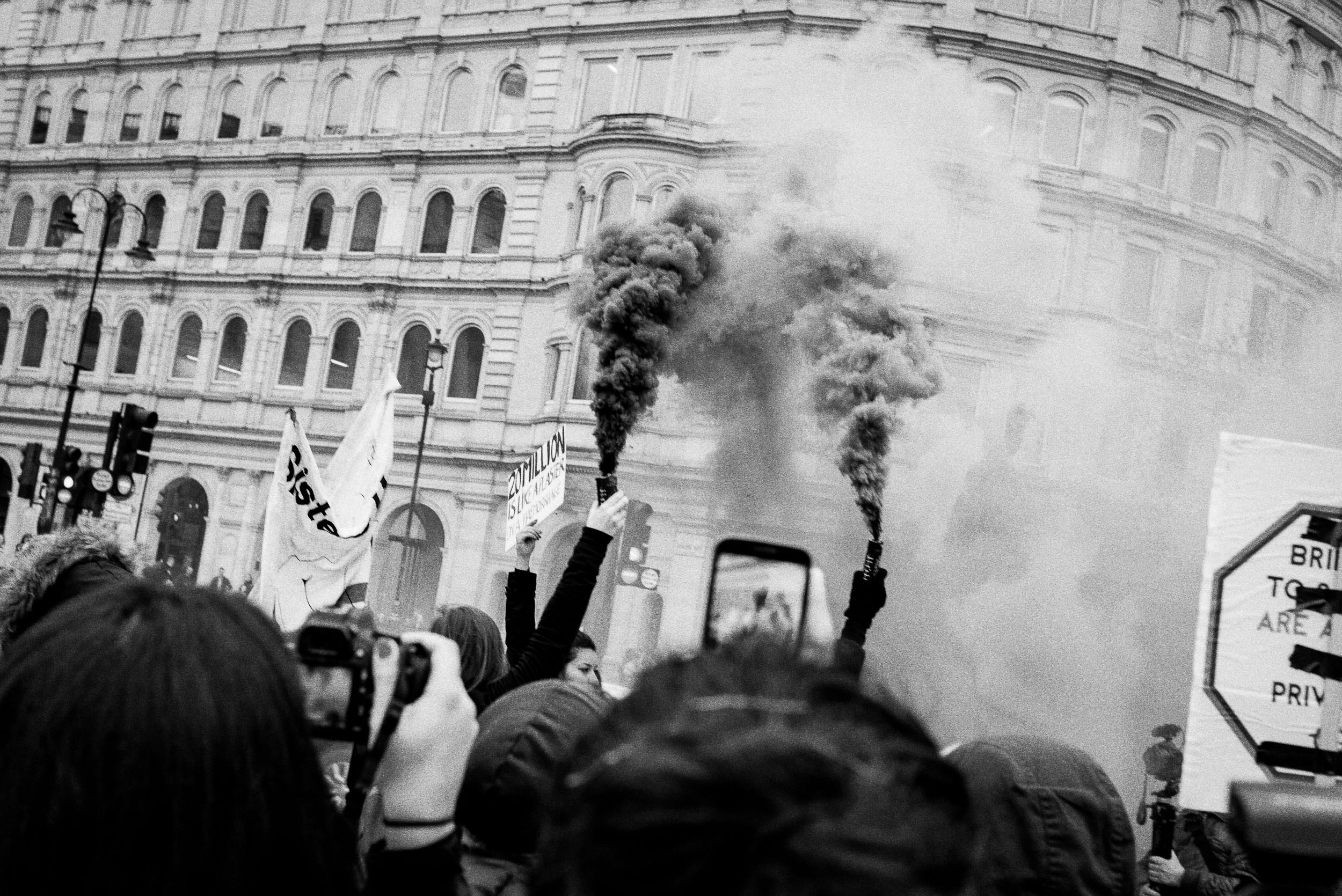
Sisters Uncut demonstration, London, 20 November 2016
Smoke grenades are lit as members of Sisters Uncut, a feminist direct-action collective, march from Trafalgar Square towards Strand. The demonstration was called to bring attention to government cutbacks to domestic violence services, in particular for Black and Minority Ethnic women.
-
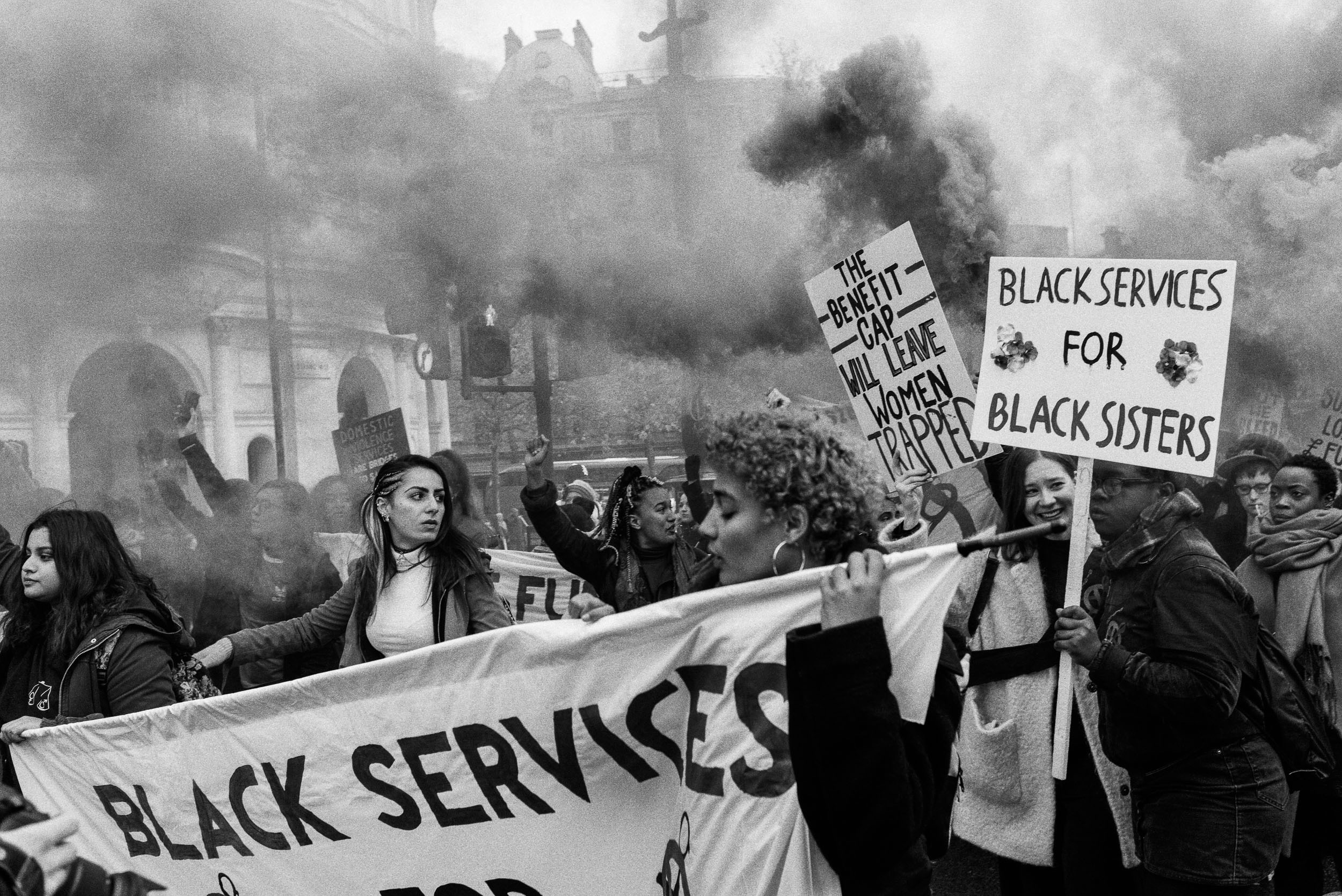
Sisters Uncut demonstration, London, 20 November 2016
Members of Sisters Uncut march down Strand towards Waterloo Bridge to stage a sit-in, blocking traffic across the bridge for nearly an hour. The collective claims that government cuts to domestic violence services are blocking survivors’ bridges to safety. At the hands of austerity economics, many DV centres in the UK have had to close, leaving others overcrowded and scrambling for financial support. In 2015, this resulted in an average of 2 in 3 women being turned away from DV refuges. That statistic was worse for Black and Minority Ethnic women, who were turned away at an average rate of 4 in 5.
-

Sisters Uncut demonstration, London, 20 November 2016
-

Sisters Uncut demonstration, London, 20 November 2016
-
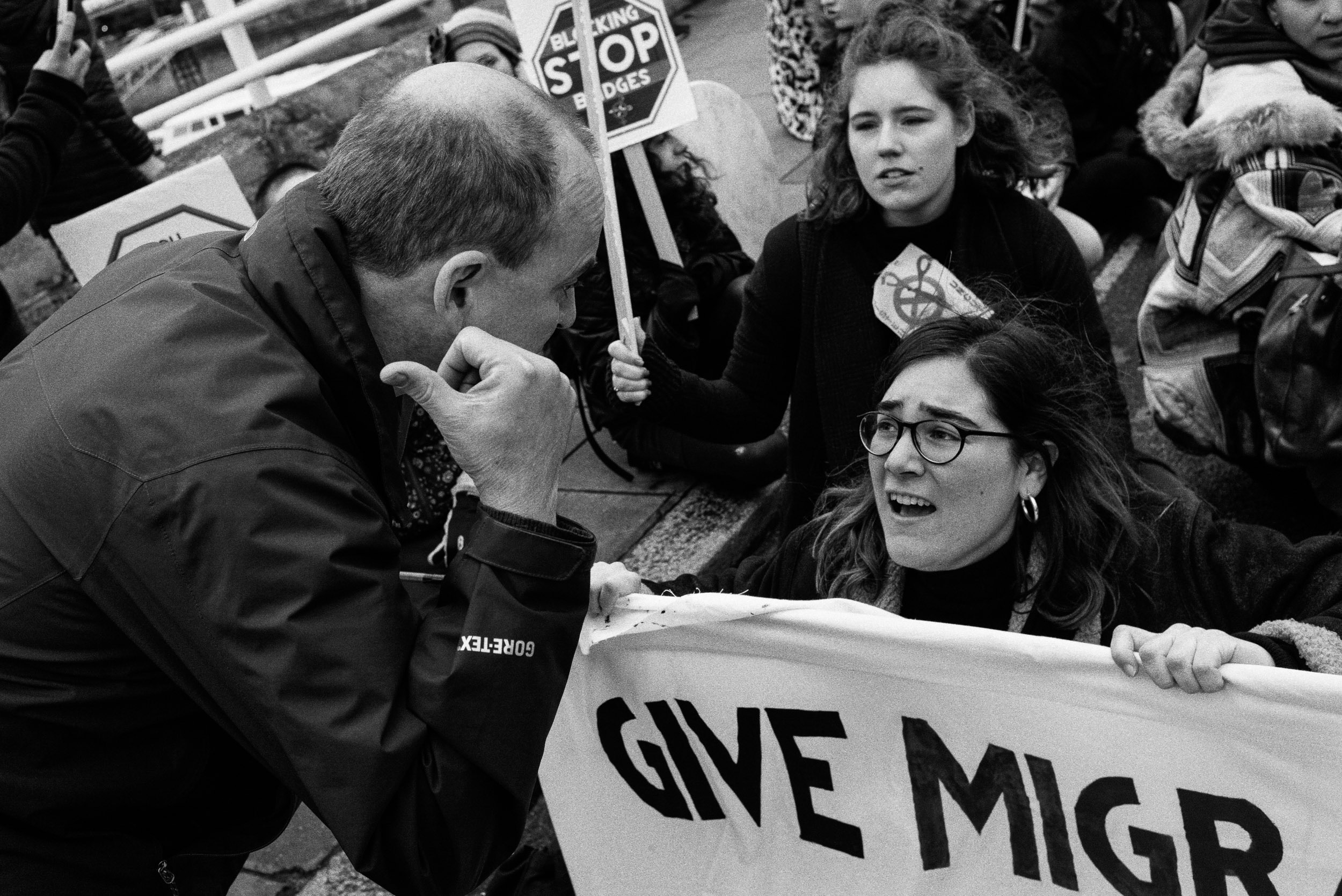
Sisters Uncut demonstration, London, 20 November 2016
An angry motorist berates members of the sit in on Waterloo Bridge for blocking traffic.
-

Sisters Uncut demonstration, London, 20 November 2016
The mood of the Sisters Uncut sit-in on Waterloo Bridge turns momentarily from sombre to joyful resistance as members dance to music blasted through a mobile PA system, drowning out the horns of gridlocked vehicles lining the bridge.
-

Sisters Uncut demonstration, London, 20 November 2016
-
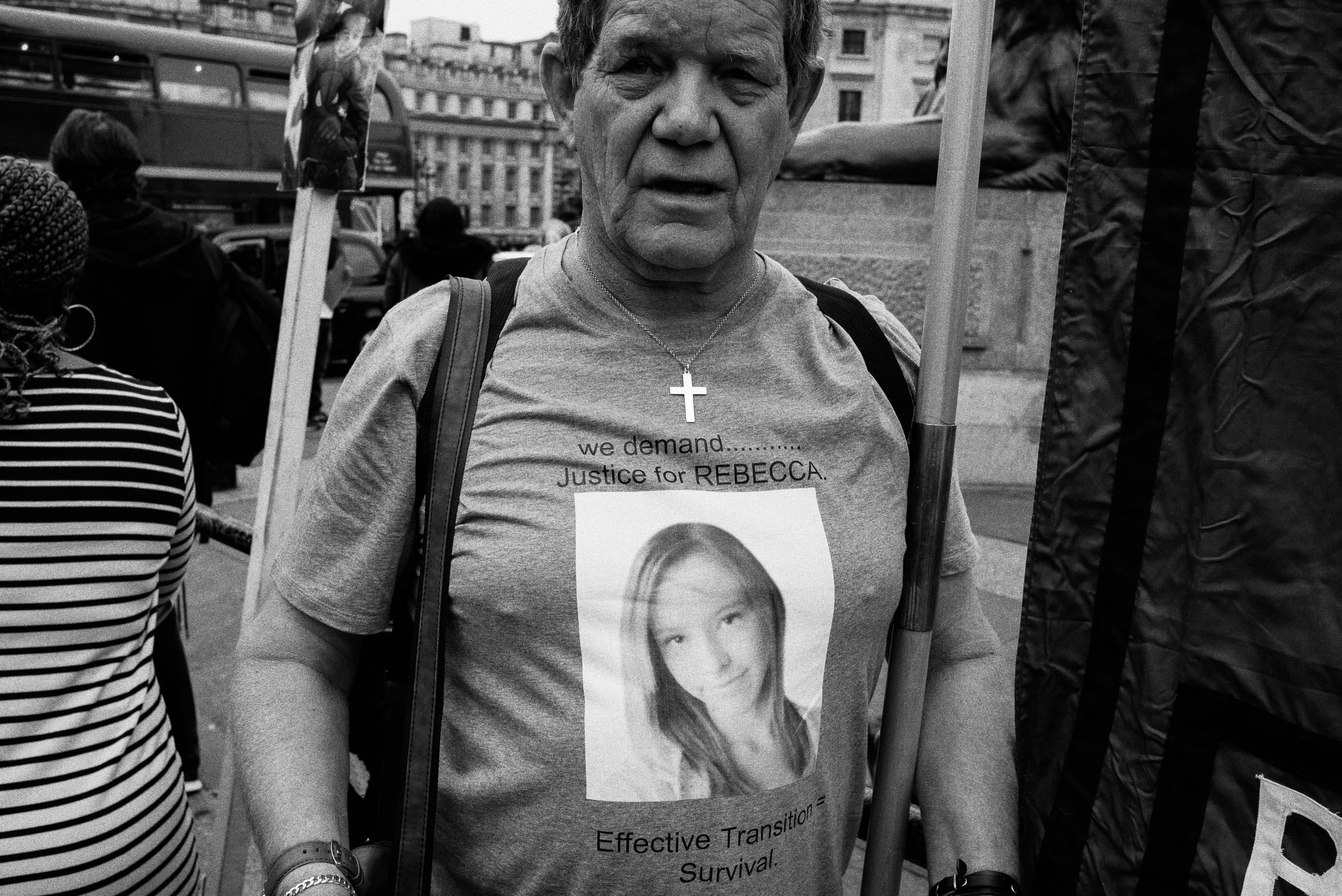
United Families and Friends Campaign annual rally, London, 29 October 2016
Barry Wilson, step-father to Rebecca Louise Overy, at the UFFC rally. Overy died while in the care of Annesley House, an adult mental health care facility. She was 18. An inquest later determined that a lack of proper transitional arrangements lead to her death.
-
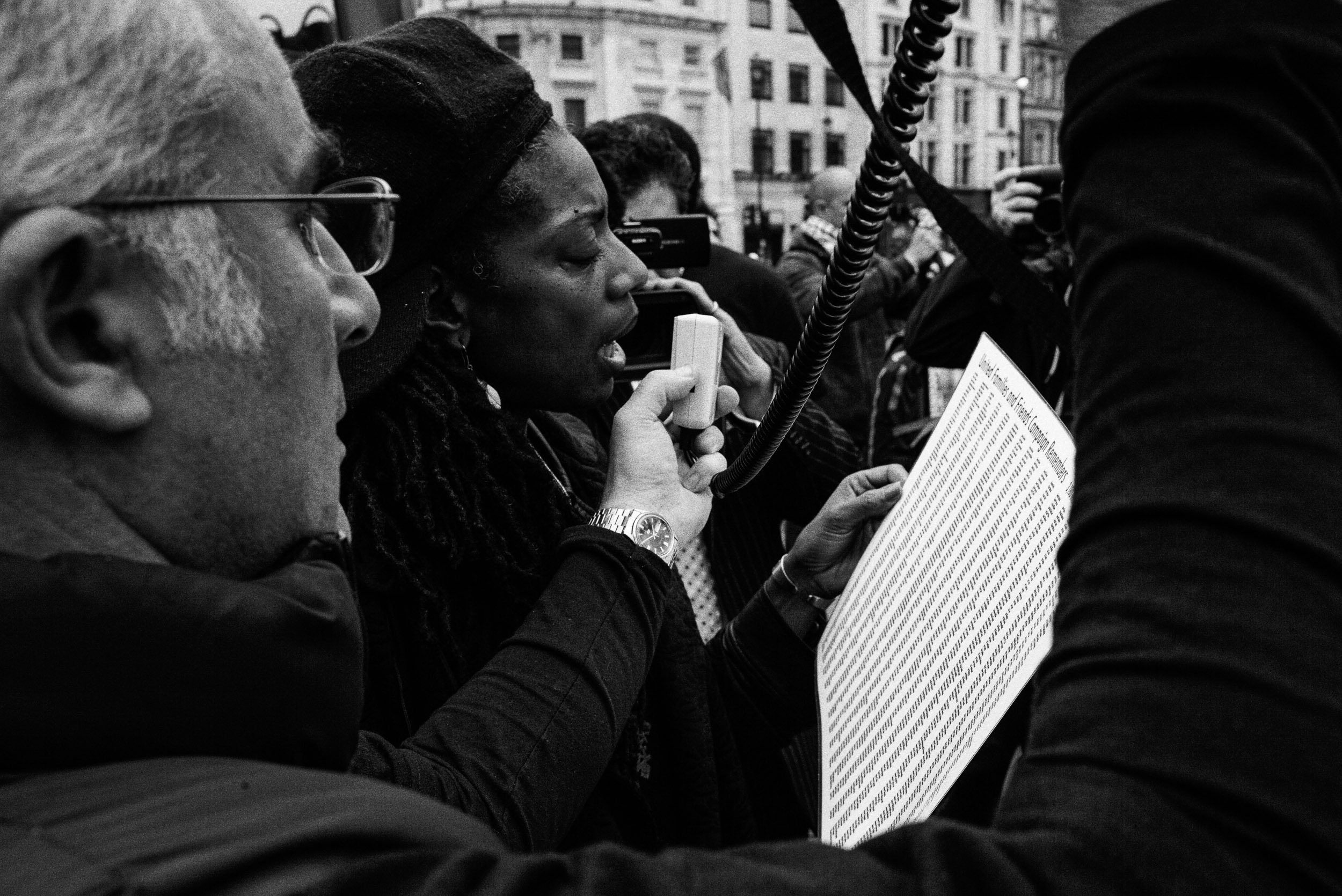
United Families and Friends Campaign annual rally, London, 29 October 2016
Marcia Rigg, sister of the late Sean Rigg, reads from a list of thousands of names — each one a person who has died in UK state custody or following a confrontation with the police. The UFFC was initially formed in 1997 as a coalition of Black families and friends affected by deaths in state custody; it has since expanded to include members of other ethnicities who are affected by deaths in state custody. Sean Rigg, a British musician and music producer who suffered from schizophrenia, died in 2008 while in police custody.
-
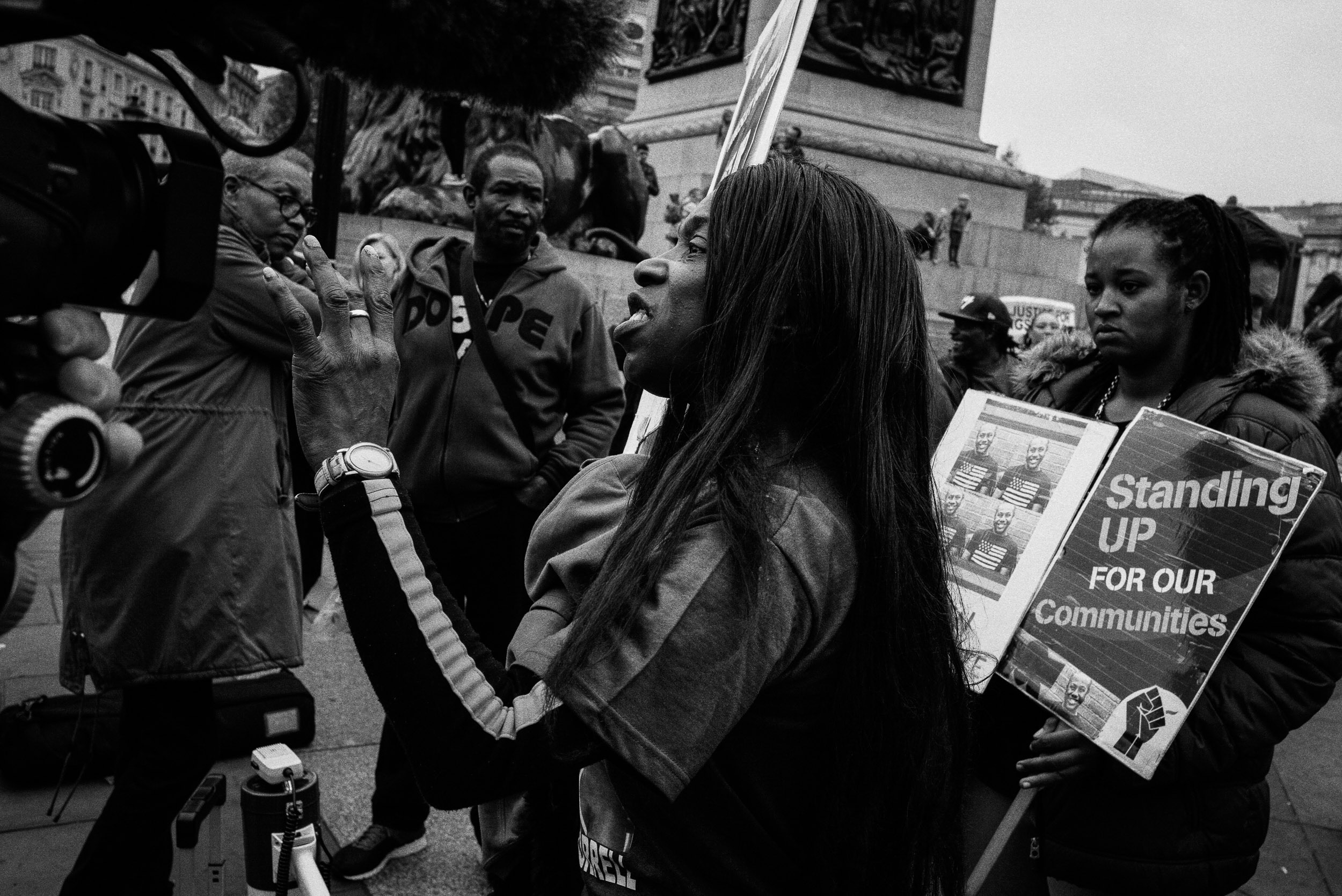
United Families and Friends Campaign annual rally, London, 29 October 2016
-
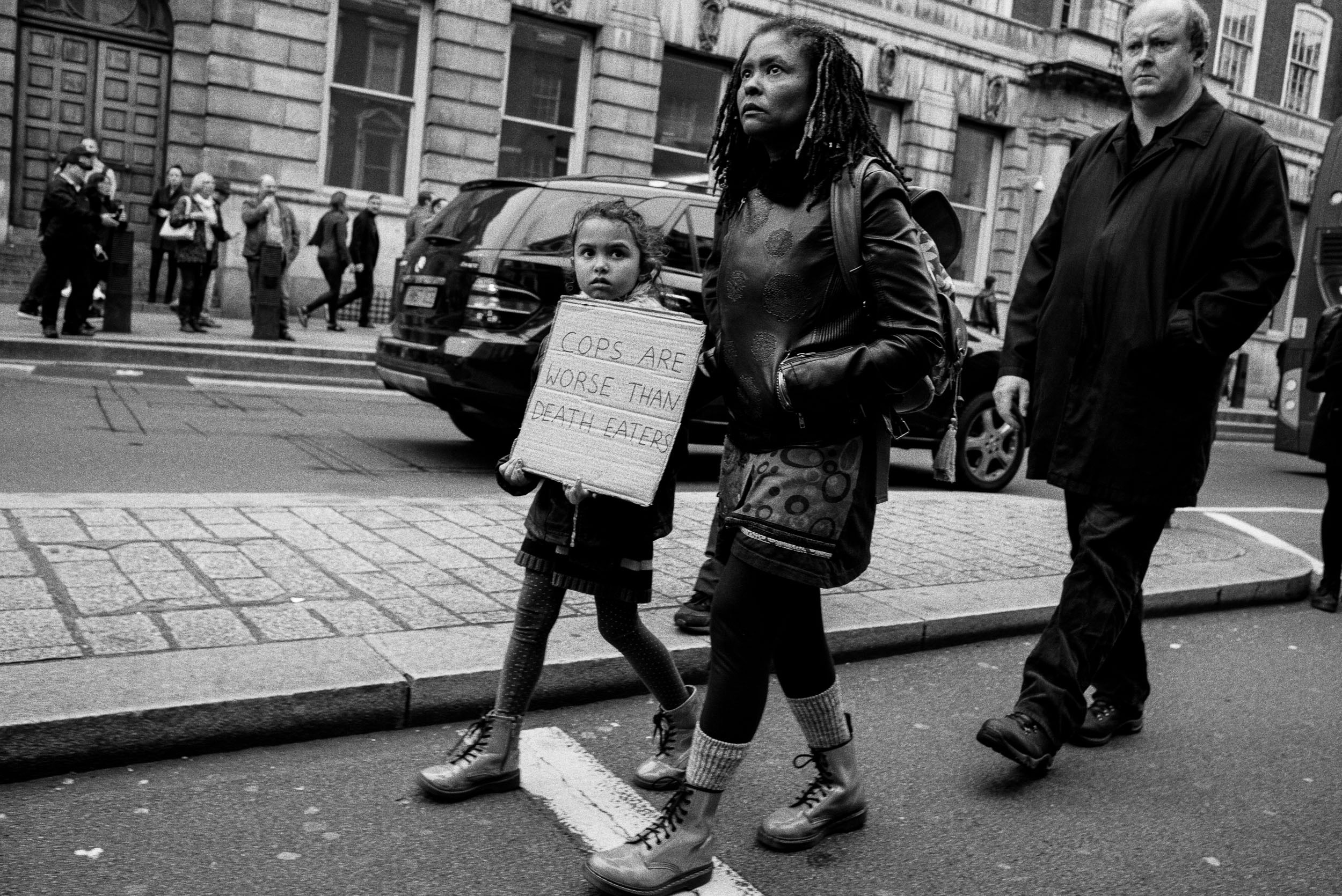
United Families and Friends Campaign annual rally, London, 29 October 2016
-

United Families and Friends Campaign annual rally, London, 29 October 2016
Marcia Rigg carries a letter at the head of the UFFC march down Whitehall. Each year, the members of the UFFC hand-deliver a letter containing the campaign’s demands for justice to the prime minister’s residence at 10 Downing Street.
-
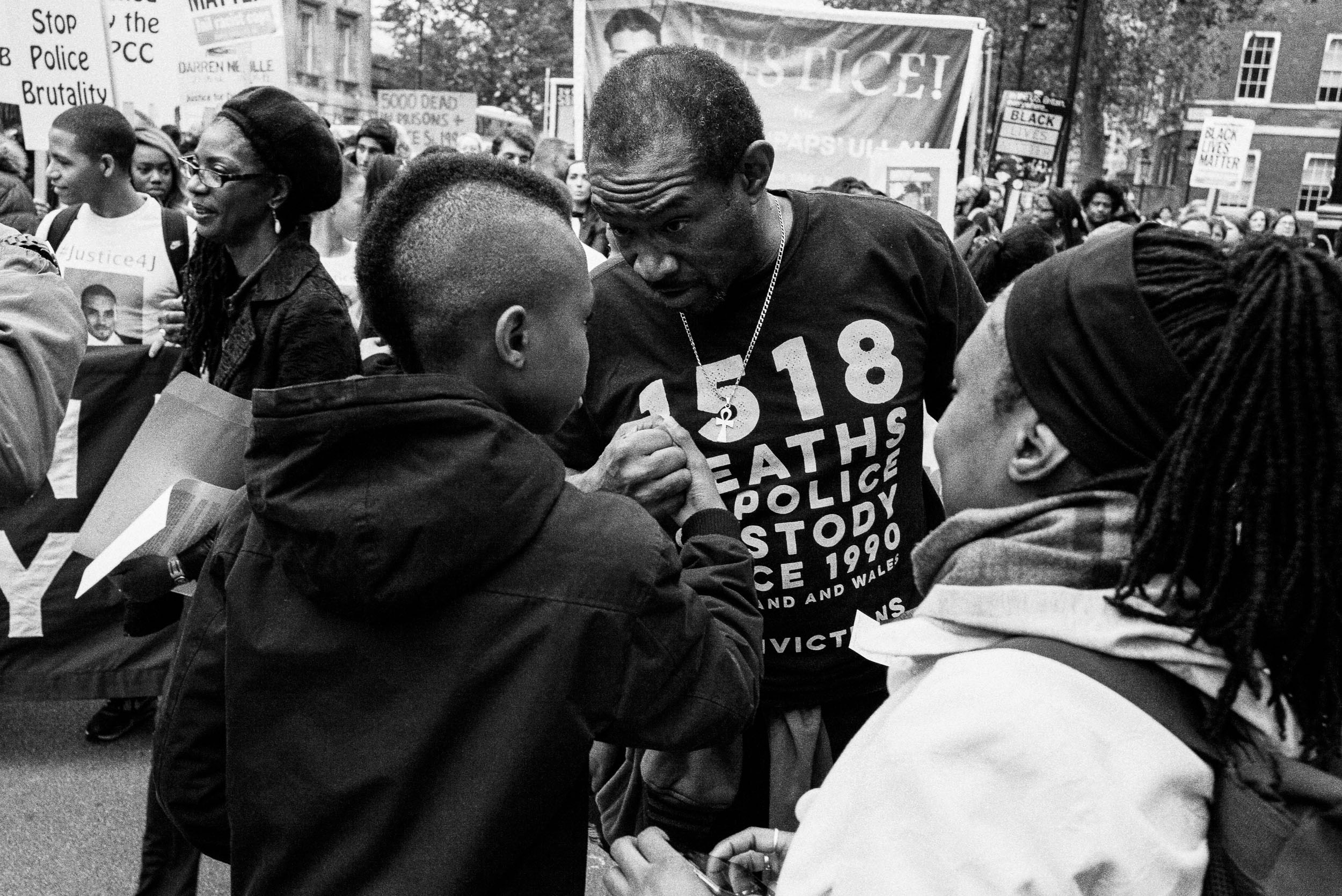
United Families and Friends Campaign annual rally, London, 29 October 2016
A man imparts advice to a friend’s son. His t-shirt reads: ‘1,518 deaths in police custody since 1990 in England and Wales. 0 convictions.’ That death toll has since swelled to 1,592, a figure which continues to rise. INQUEST, a charitable organisation working in the area of contentious deaths, reports that ‘a disproportionate number of those who die in or following police custody following the use of force are from Black and Minority Ethnic communities’.
-
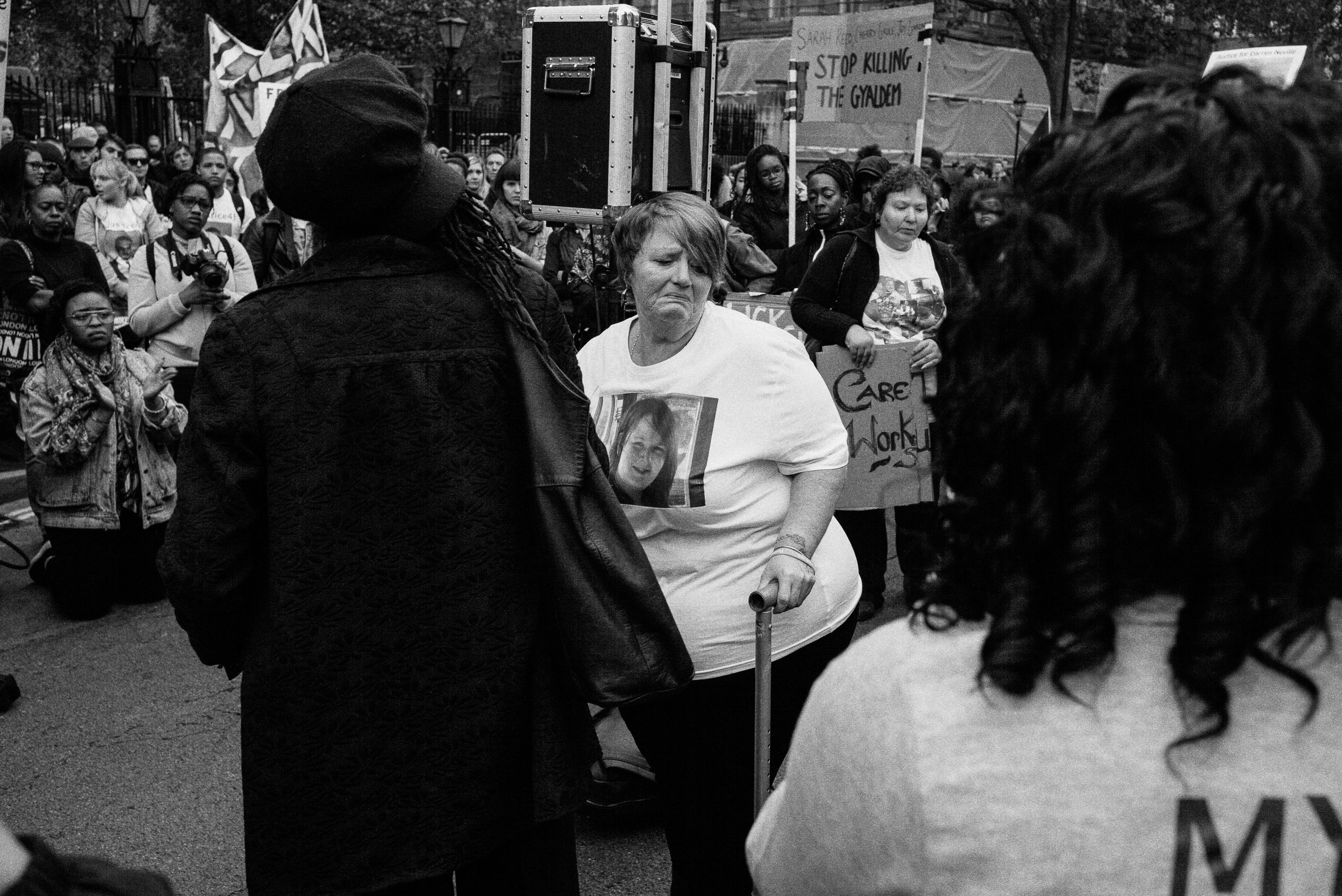
United Families and Friends Campaign annual rally, London, 29 October 2016
Members of UFFC tell the stories of their loved ones and their deaths at the hands of police and state violence.
-
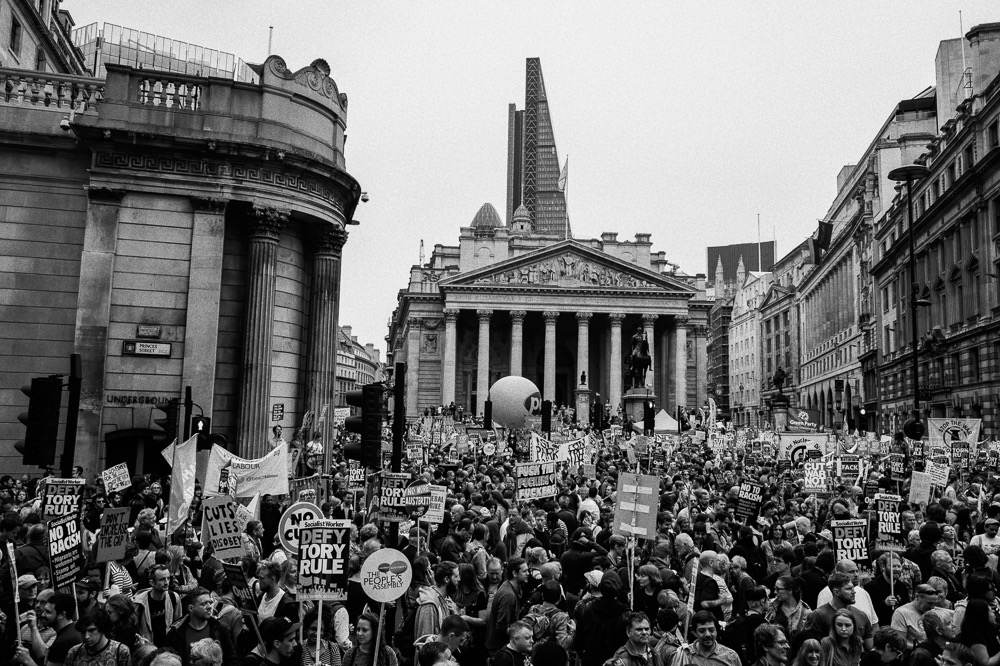
Anti-austerity protest, London, 20 June 2015
Demonstrators gather at Bank Junction to protest the UK government’s continued use of austerity measures. Up to 250,000 people attended the event organised by the People’s Assembly Against Austerity.
-

Anti-austerity protest, London, 20 June 2015
-
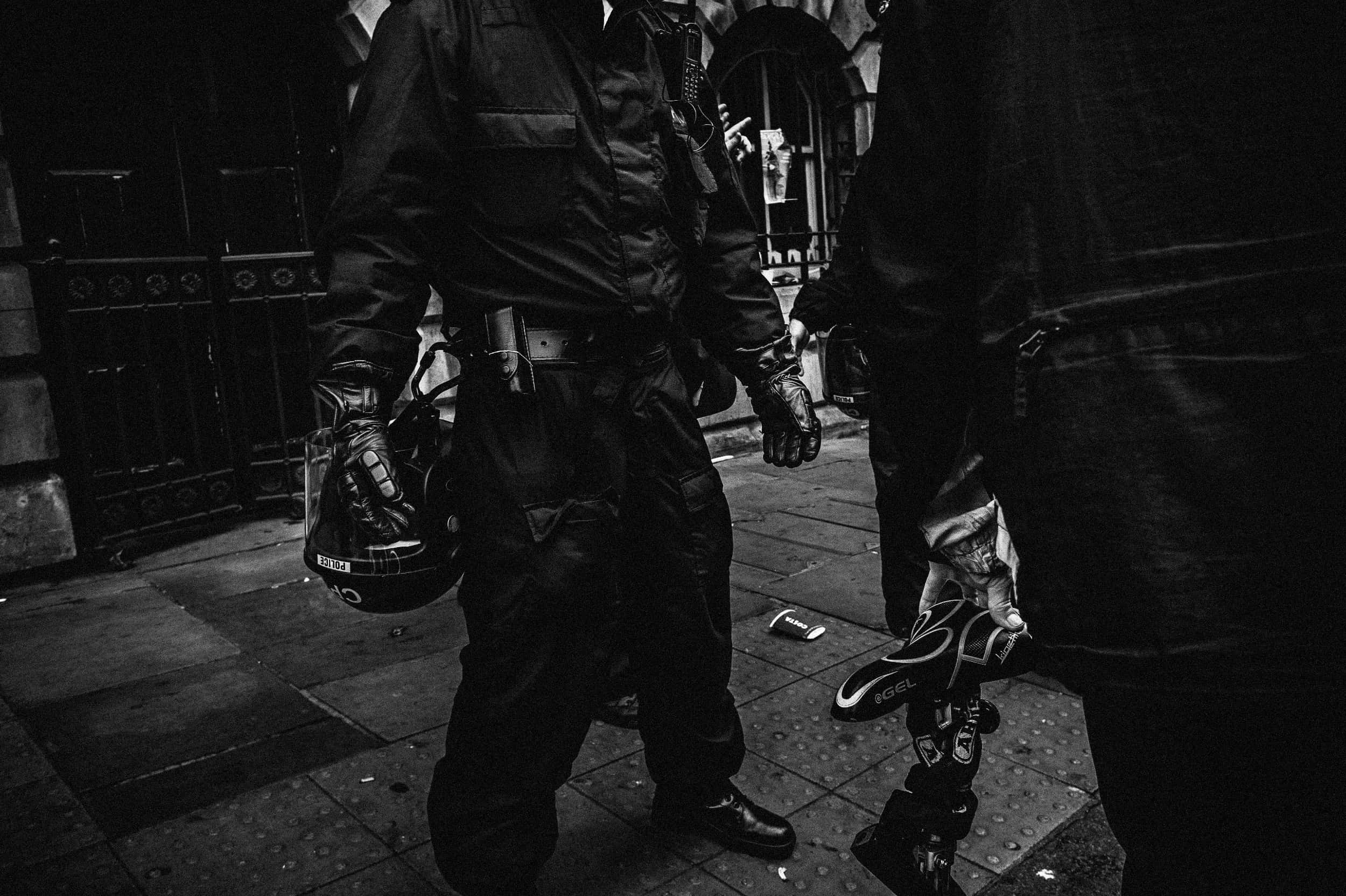
Anti-austerity protest, London, 20 June 2015
-
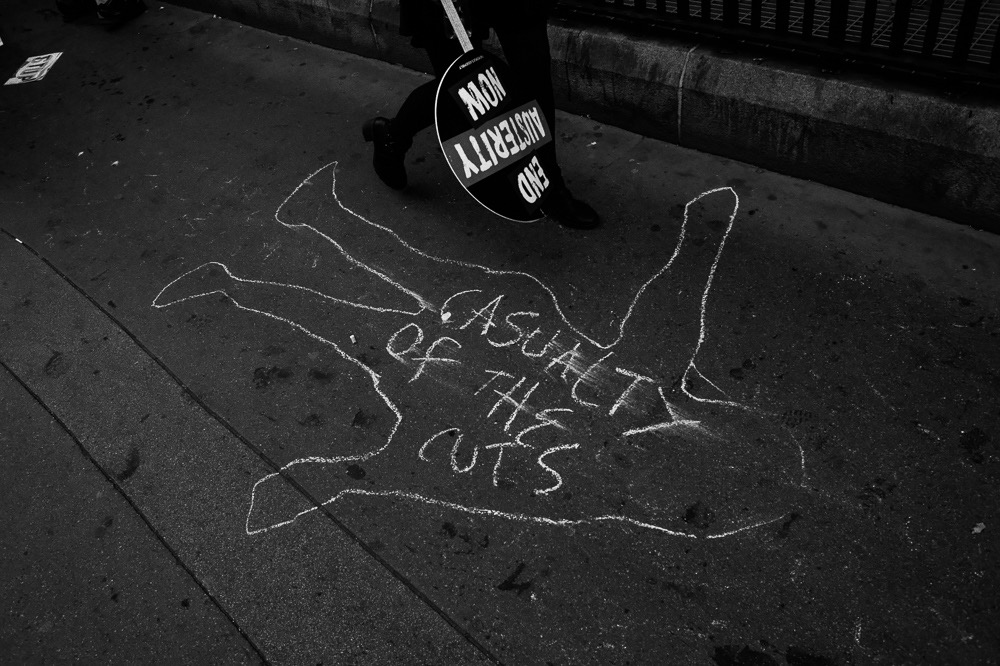
Anti-austerity protest, London, 20 June 2015
-
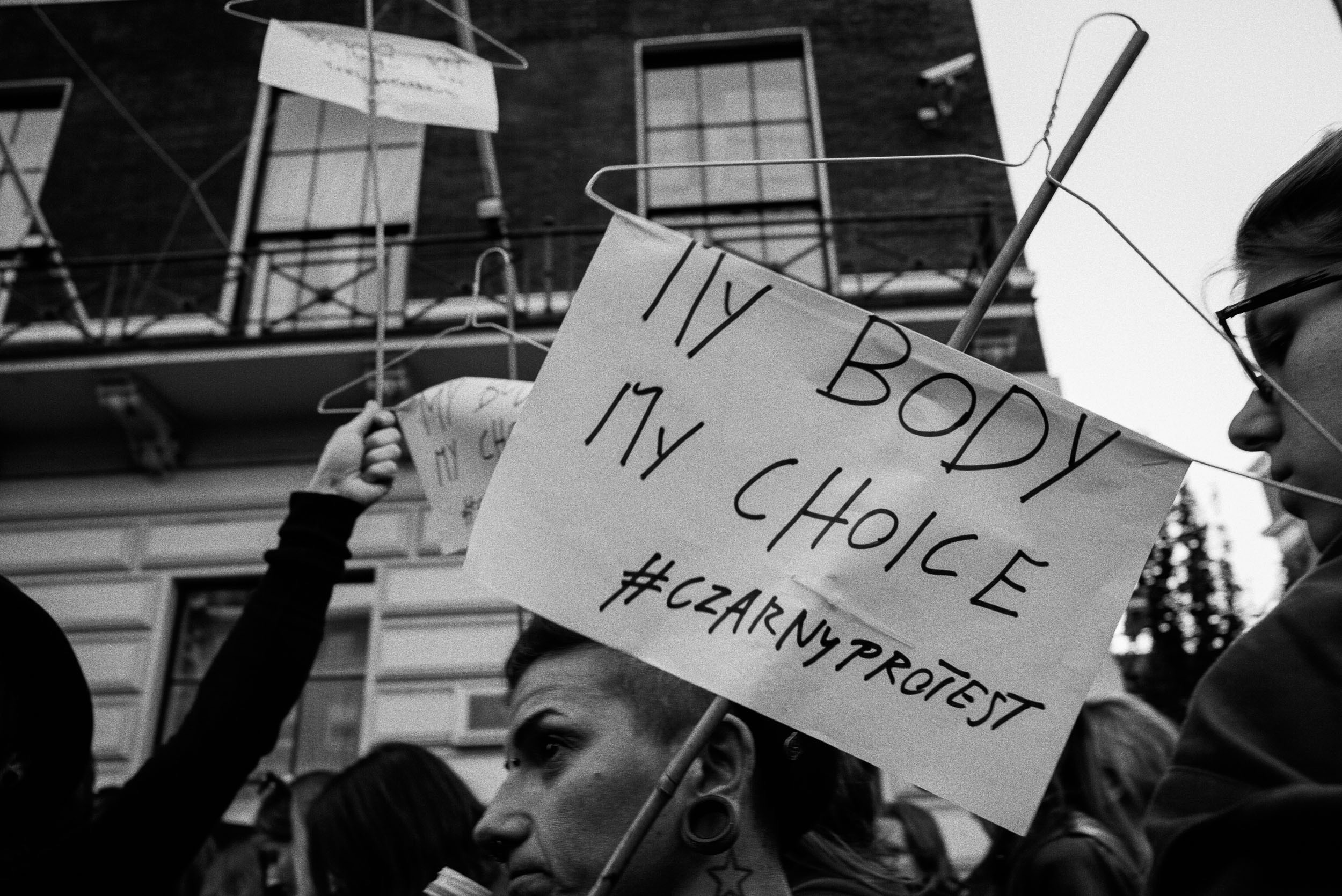
Black Monday protest, Polish Embassy in London, 3 October 2016
Polish women in London gather to protest a proposed amendment to Polish law which would enable the wholesale criminalisation of abortion. Poland’s abortions laws have been restrictive since the fall of communism, permitting abortion only in the most extreme circumstances.
-
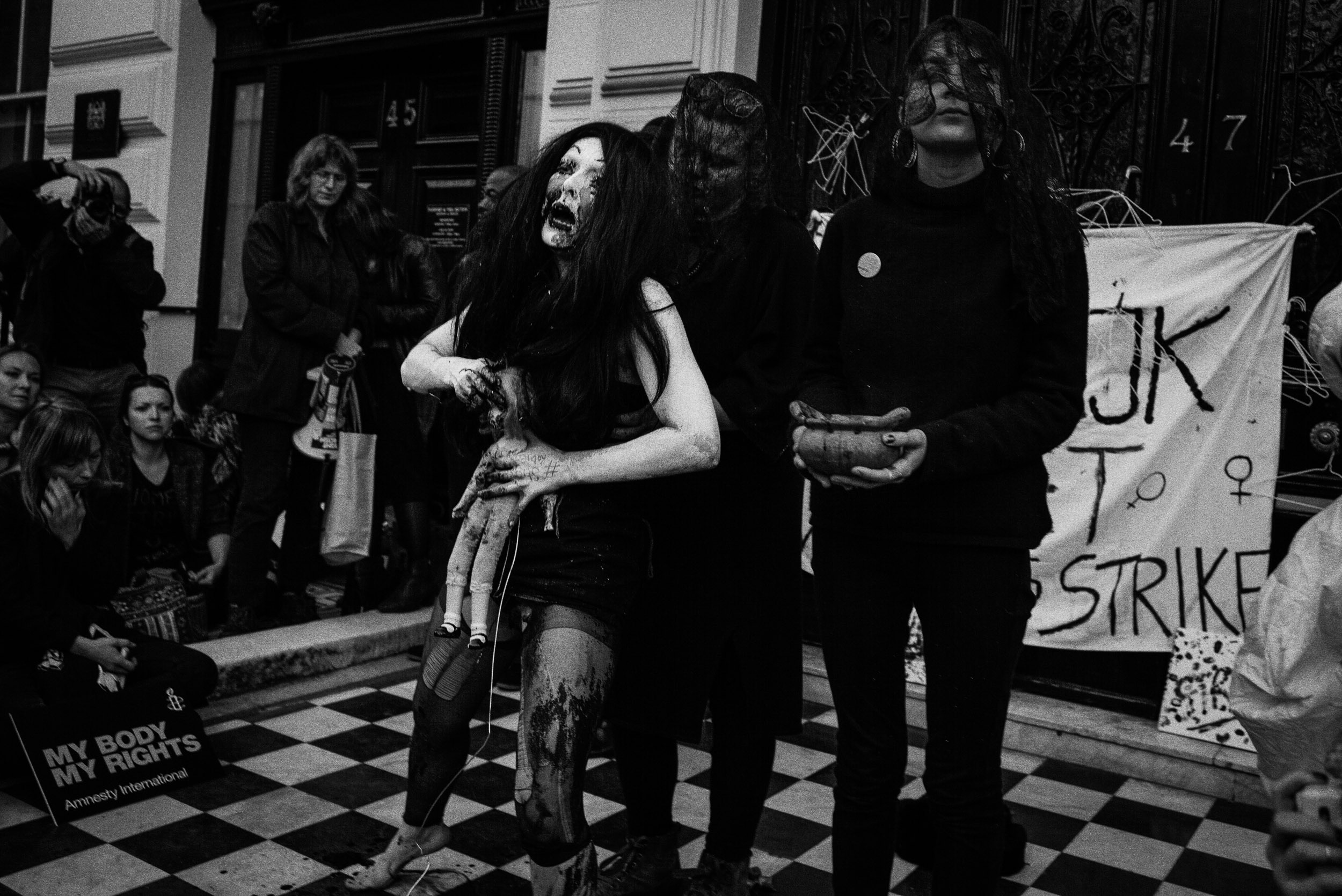
Black Monday protest, Polish Embassy in London, 3 October 2016
Women enact a dramatic performance on the doorstep of the Polish Embassy in London; sombre music is played as the words ‘We are mourning the loss of our reproductive rights’ is repeated over a megaphone.
-

Black Monday protest, Polish Embassy in London, 3 October 2016
While international protests saw the proposed wholesale criminalisation of abortion in Poland overturned, women in Poland are still legally prohibited from undergoing abortion except in the case of rape or incest, if the woman’s life is at risk, or if the foetus is severely disabled.
-
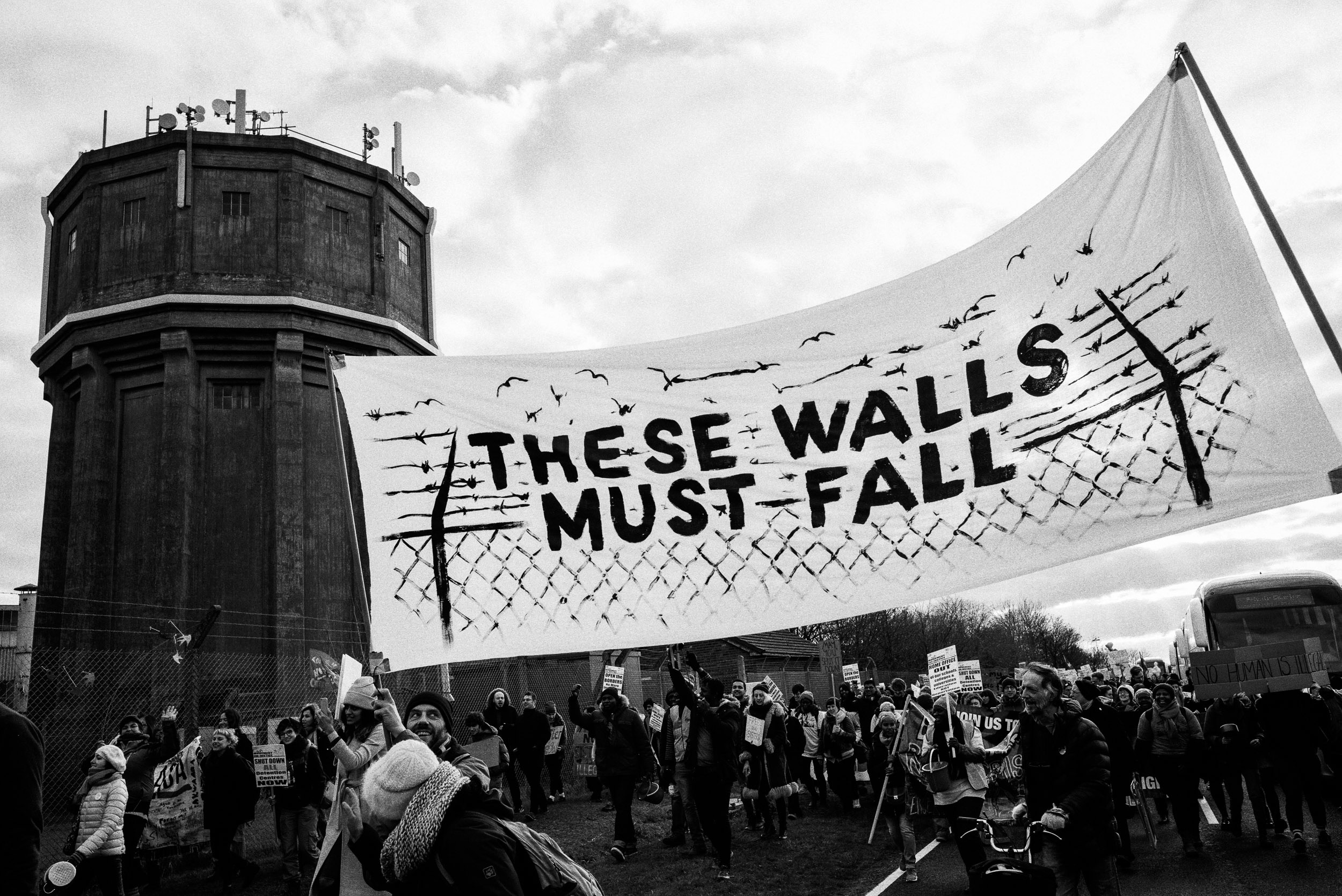
Shut Down Yarl’s Wood demonstration, Bedfordshire, 3 December 2016
Demonstrators make their way through fields surrounding the back of Twinwoods Business Park — a former military research facility — towards Yarl’s Wood Immigration Removal Centre. Yarl’s Wood is the most notorious of the UK’s 13 immigration removal centres, and has been the centre of extreme controversy and violence since its inception.
-

Shut Down Yarl’s Wood demonstration, Bedfordshire, 3 December 2016
-
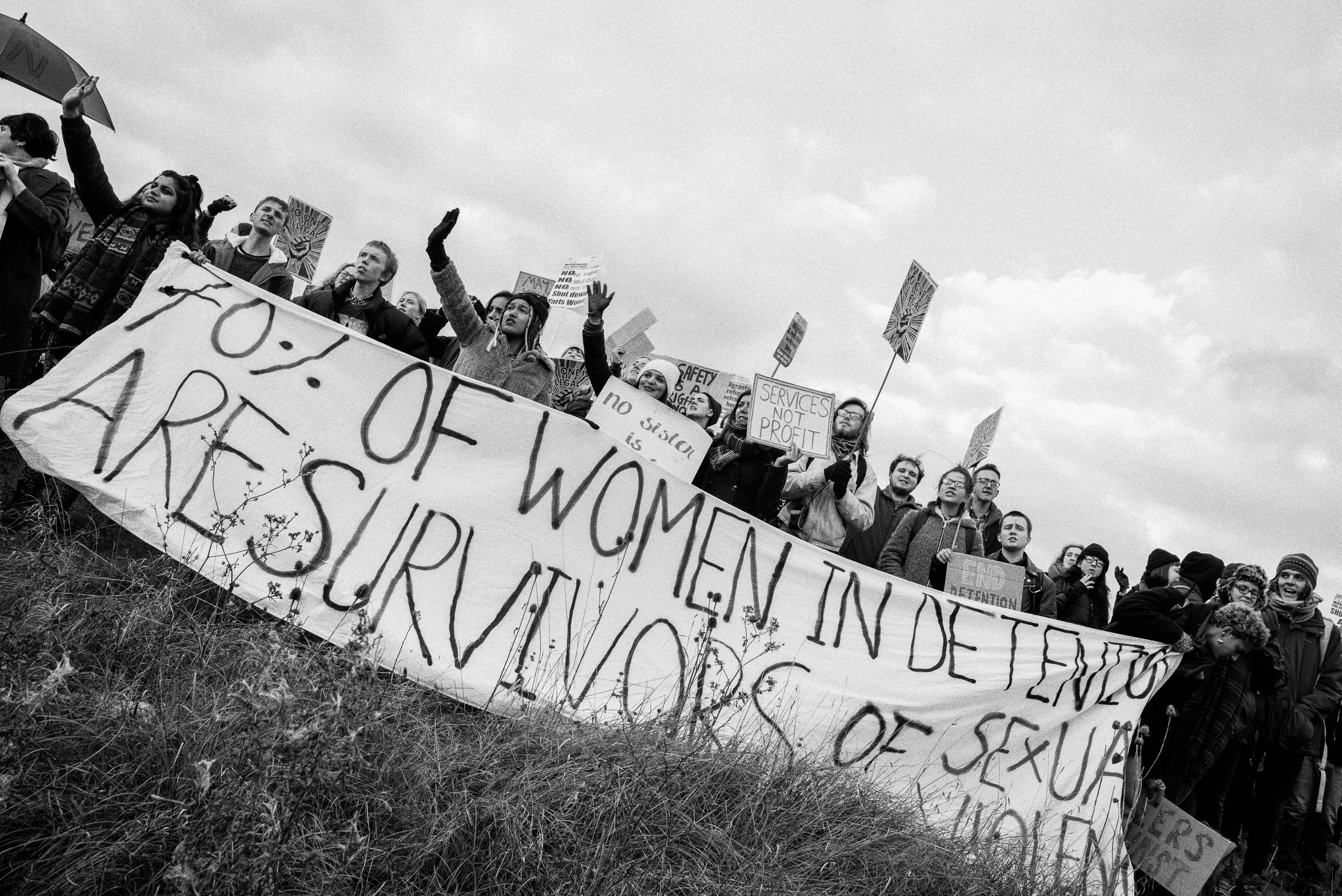
Shut Down Yarl’s Wood demonstration, Bedfordshire, 3 December 2016
Demonstrators wave to detainees inside Yarl’s Wood from behind a banner held by members of Sisters Uncut. Most of Yarl’s Wood’s up to 400 detainees are women, many of whom came to the UK seeking asylum in an attempt to escape physical and sexual abuse, rape and domestic violence, forced marriage, persecution, FGM, and other such atrocities in their homelands. Inside Yarl’s Wood, they face an ongoing threat of physical and sexual abuse at the hands of guards and other staff. Some women have been detained for nearly two years.
-
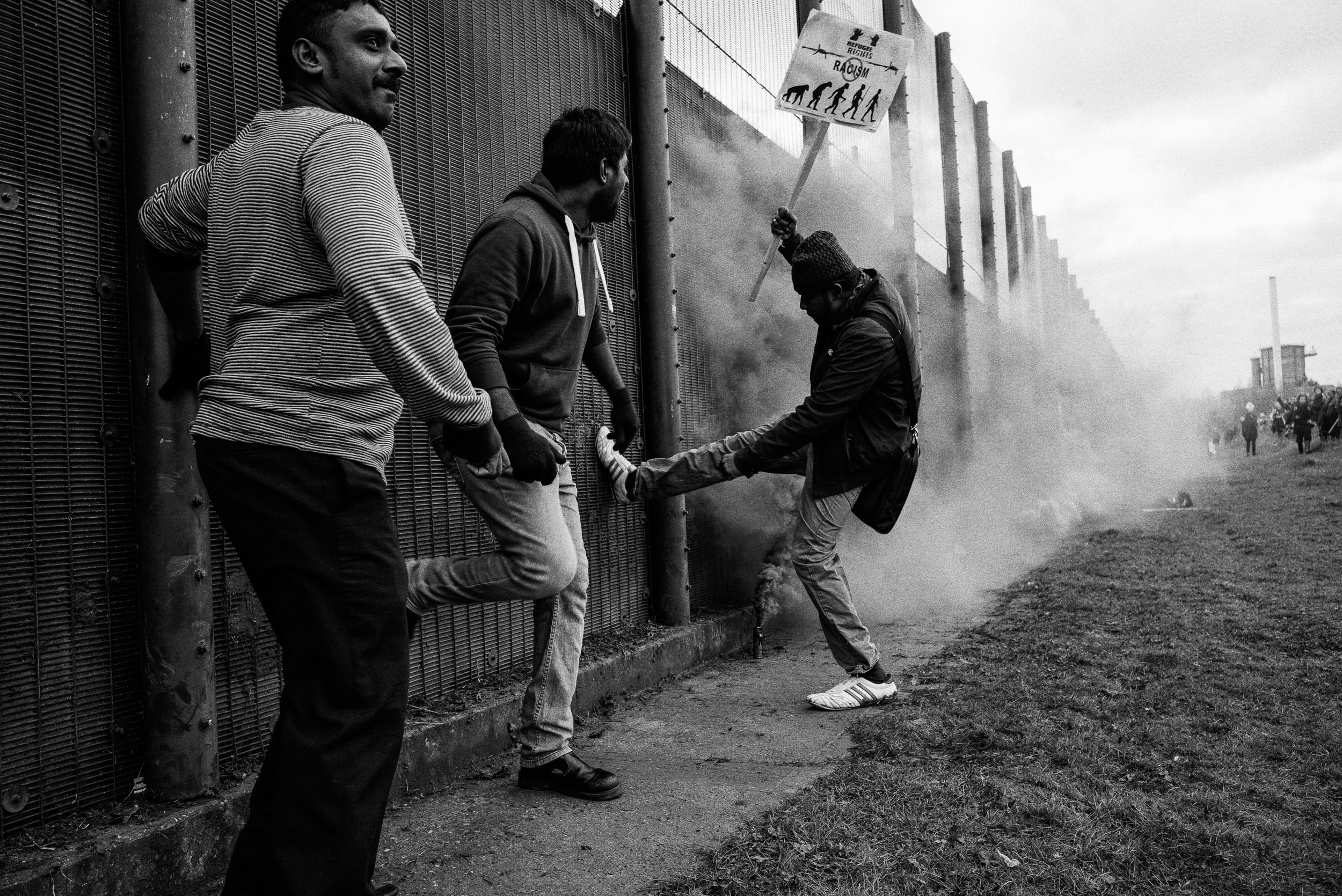
Shut Down Yarl’s Wood demonstration, Bedfordshire, 3 December 2016
Demonstrators attack the 20-foot metal wall and fence surrounding Yarl’s Wood. Despite years of controversy, undercover reports, and testimonies from past and current detainees, the UK Home Office continues to honour its £70 million contract with Serco, the private security firm managing Yarl’s Wood. The complex is closed to journalists, but allegations continue to roll in, with some women claiming that life in Yarl’s Wood is worse than in prison. In some cases, women have become so distraught by their treatment that they have turned to suicide, throwing themselves off of stairwells, slashing their wrists, or hanging themselves.
-
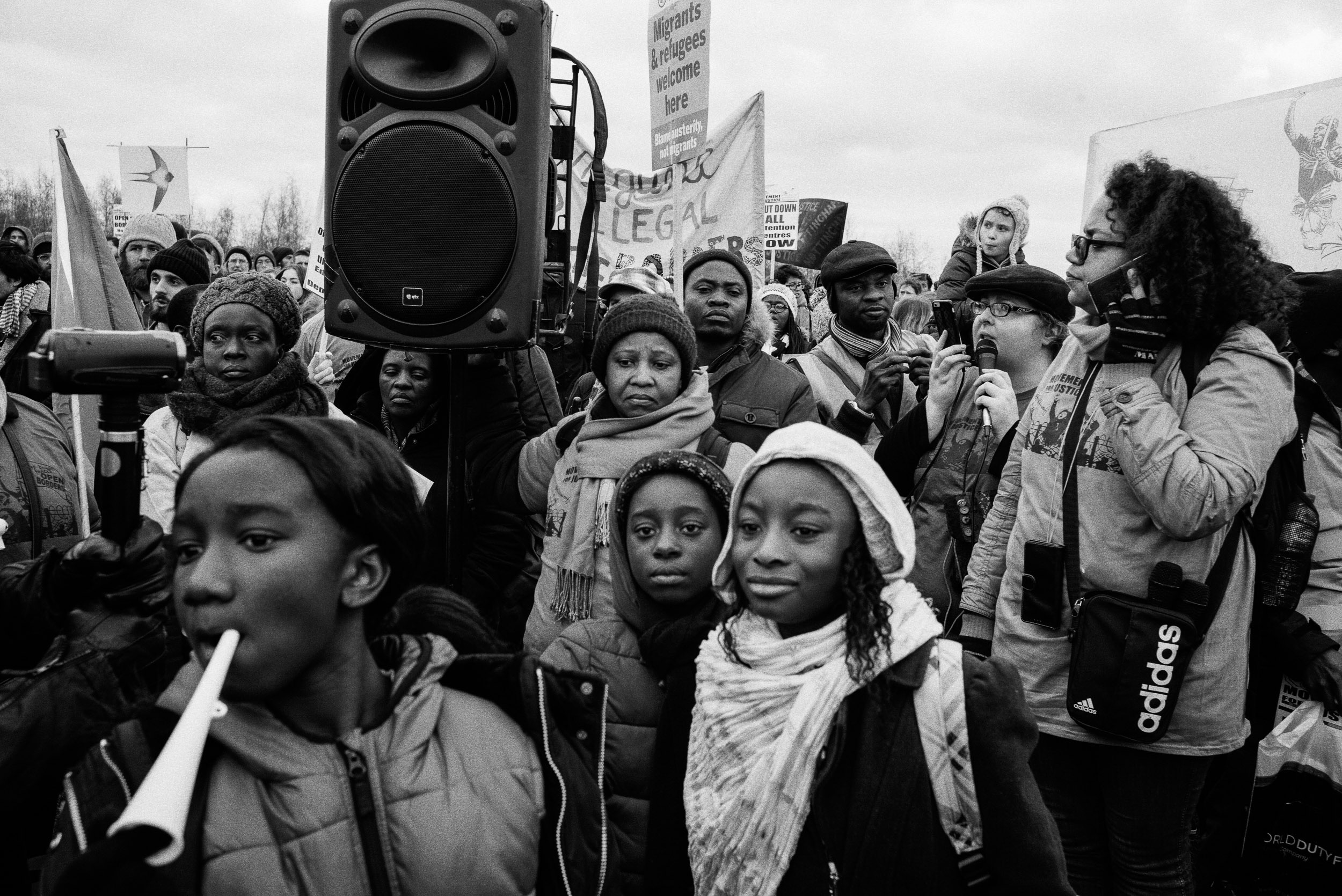
Shut Down Yarl’s Wood demonstration, Bedfordshire, 3 December 2016
During the protest, many detainees of Yarl’s Wood have been locked down, away from windows to prevent their participation or observance of the event. A few manage to place phone calls to a mobile phone patched through a PA system, allowing demonstrators to listen to them. The crowd is silent as the voices of women inside Yarl’s Wood echo over the field, calling for justice and decrying the denial of their basic human rights.
-
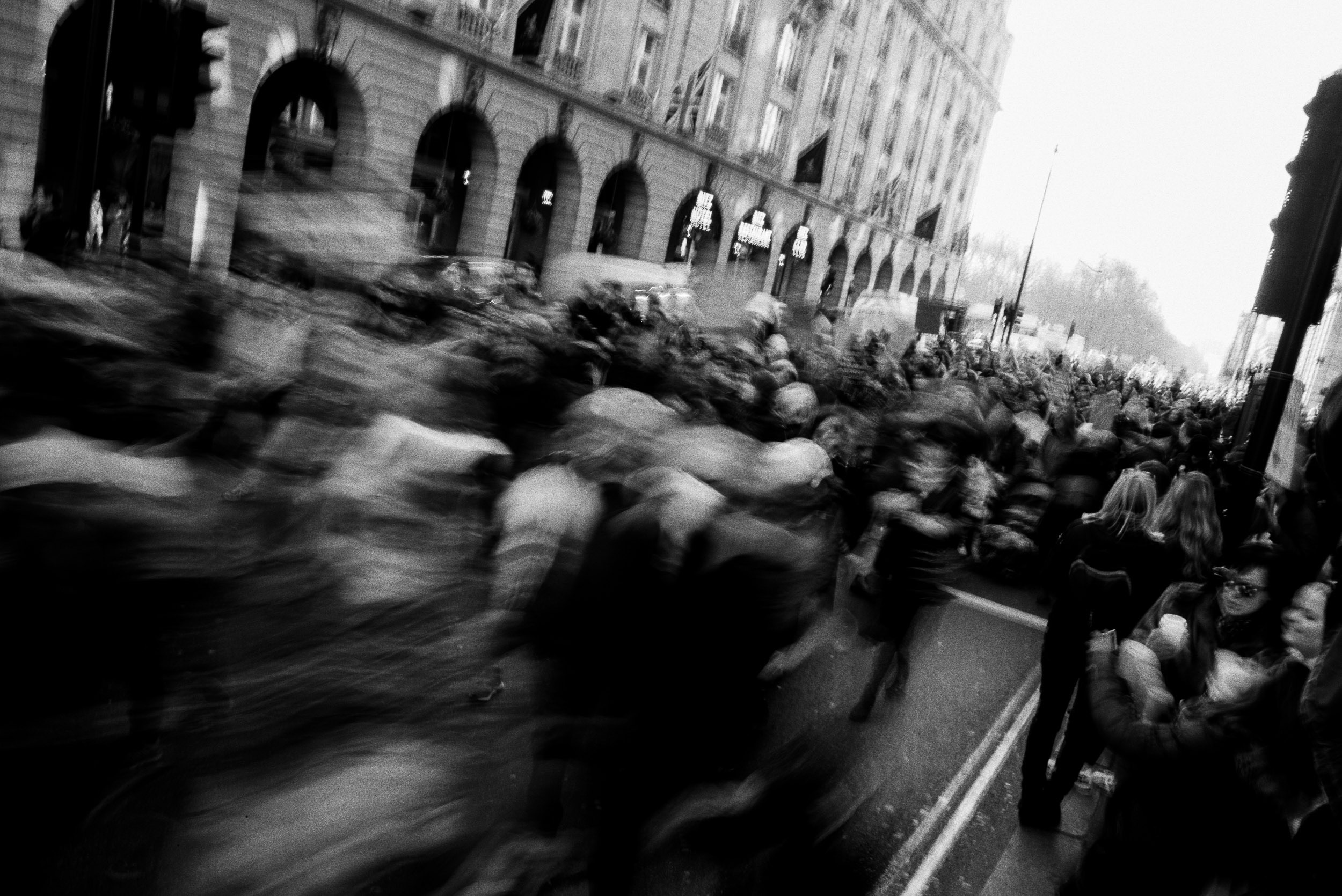
Women’s March on London, 21 January, 2017
-
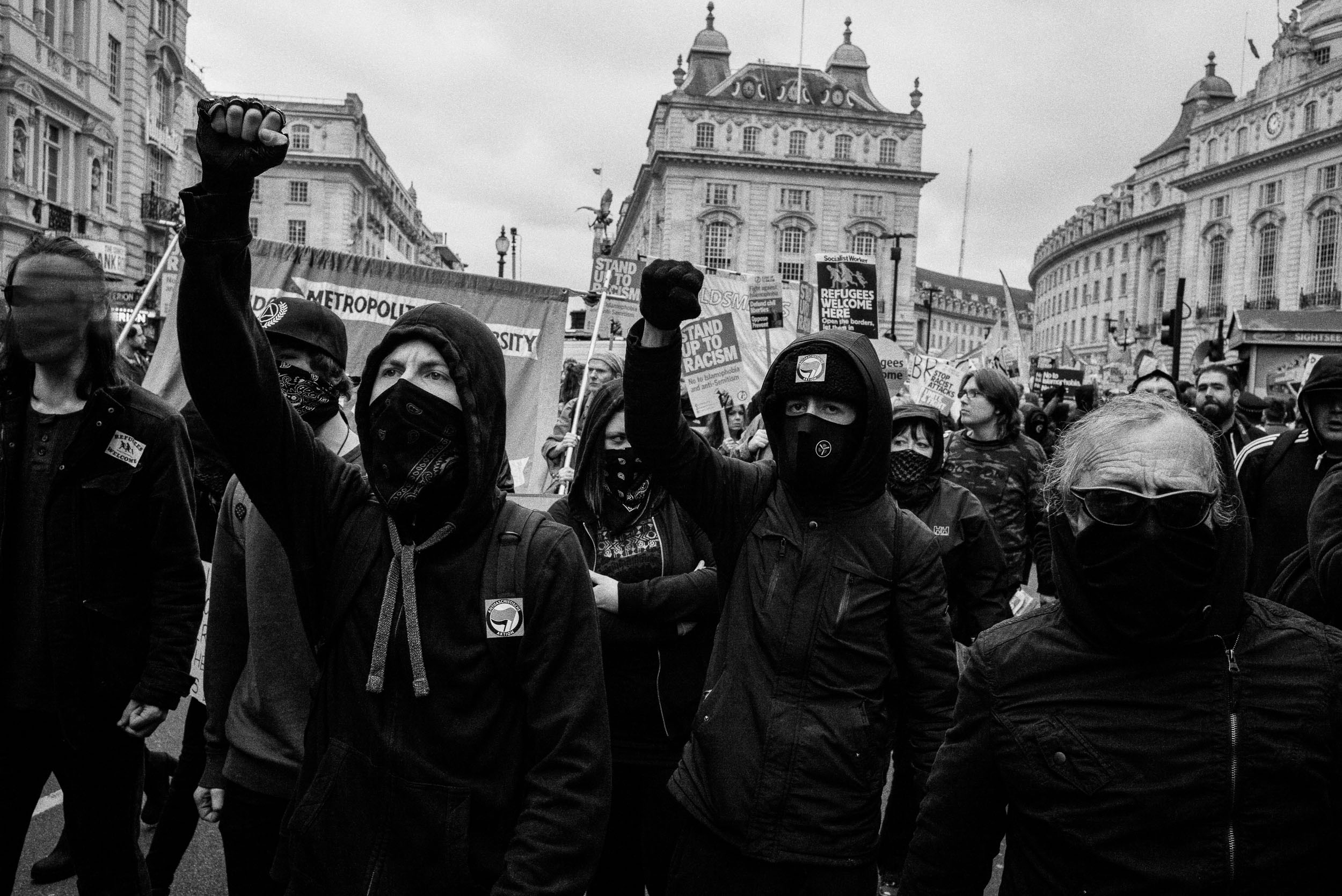
March Against Racism, London, 18 March 2017
-

Not My Presidents Day rally, London, 20 February 2017
While members of parliament debated allowing US president Donald Trump to make an official visit to the UK, citizens made their opinion known outside Westminster.
-

Not My Presidents Day rally, London, 20 February 2017